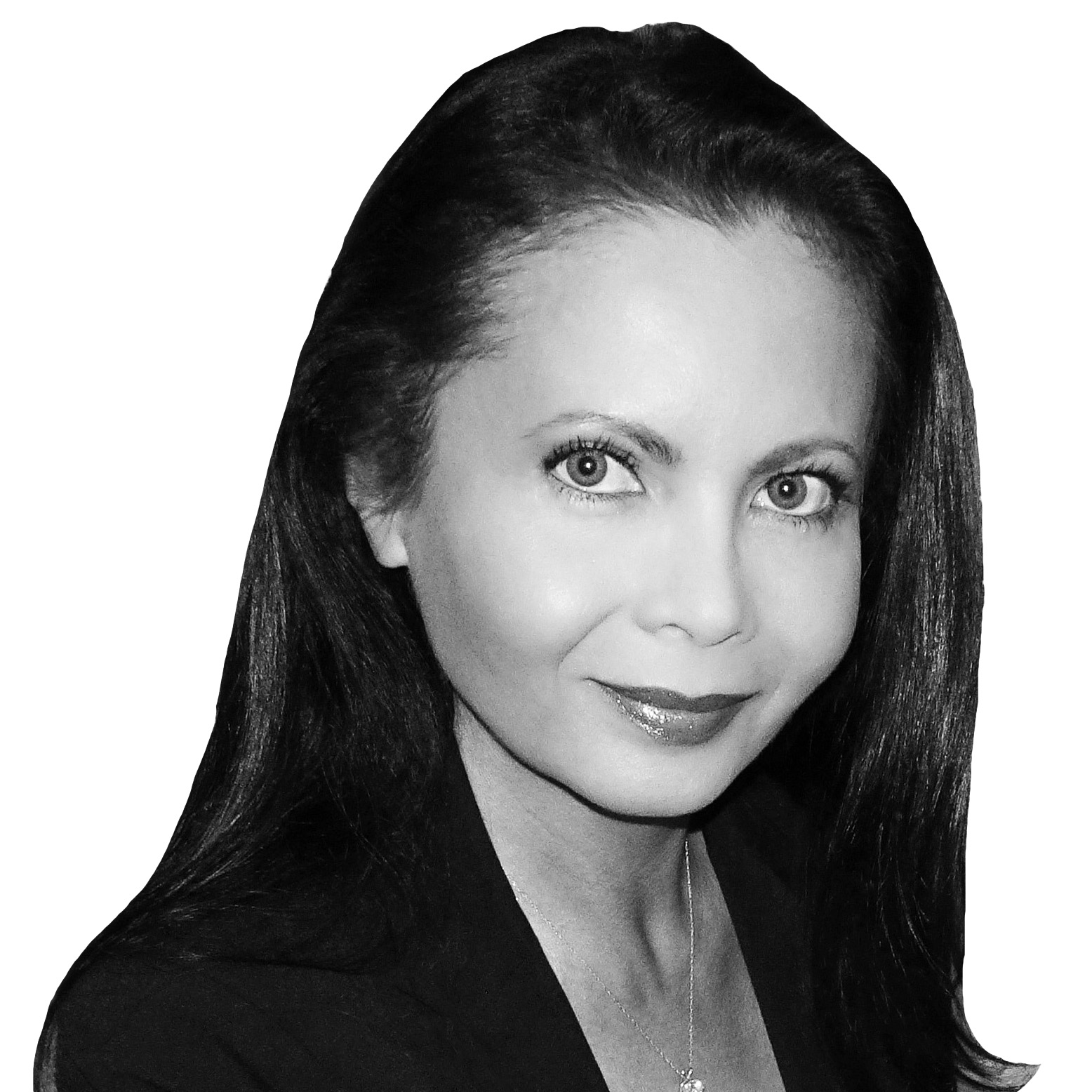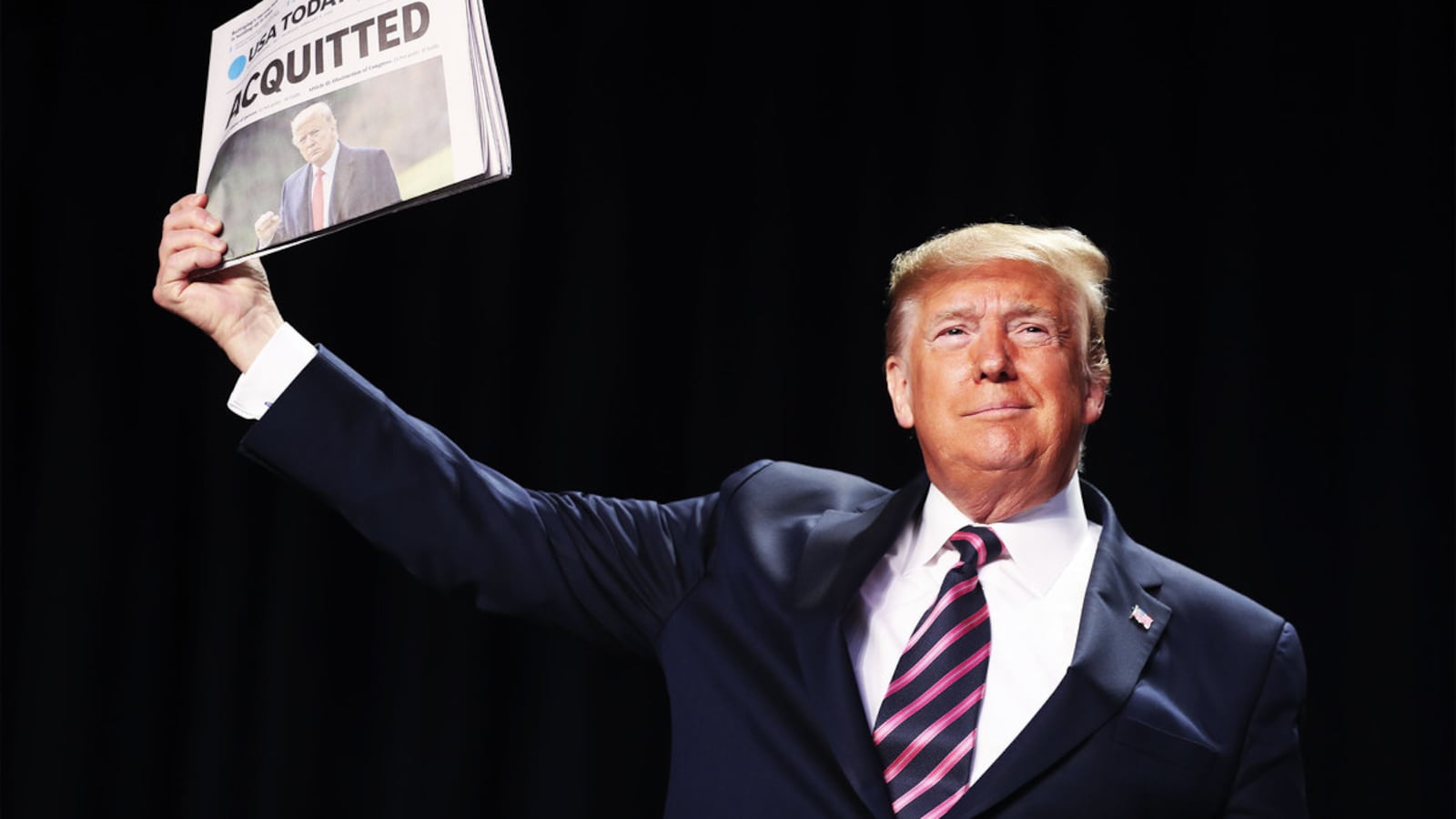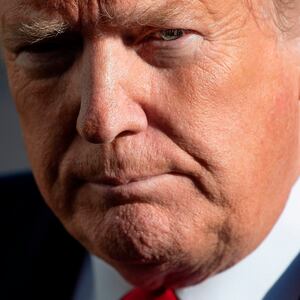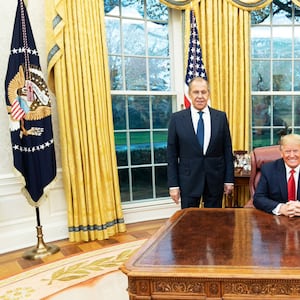Russian state media have welcomed enthusiastically the recent U.S. Senate acquittal of President Donald J. Trump. Having predicted this outcome for his impeachment trial, Russian experts and state-media pundits are anticipating beneficial side effects for the Kremlin as Trump is more Trump—and more Russia’s Trump—than ever.
Dmitry Kiselyov, the host of Russia’s popular Sunday news program Vesti Nedeli, said, “Democrats are openly raging, but while they’re licking their wounds, Trump can now objectively afford to pursue a more positive course of action toward Russia—just as he planned all along while being elected for the first term.”
Russian President Vladimir Putin’s recent invitation to Trump to attend Victory Day festivities in Moscow this spring is designed to bring the U.S. president ever deeper into the Kremlin fold. Appearing on Sunday Evening With Vladimir Soloviev, politician Sergey Stankevich asserted, “Donald Trump has to come to Moscow in May, no doubt about it. He is obligated to be here.”
Expecting concessions from Trump, the Russian state media are playing along with his agenda, attacking Democrats, the Ukraine whistleblower, and impeachment witnesses. Vesti Nedeli described the ouster of the Vindman brothers as Trump “settling the scores” against those who dared to speak up against him. It repeated a previously debunked conspiracy theory baselessly claiming Yevgeny Vindman was assigned to review former National Security Adviser John Bolton’s book manuscript before “leaking the draft to the press.”
Pundits on Vladimir Soloviev’s show appeared practically giddy about Trump’s acquittal and the retaliatory onslaught that followed. “Trump pulled out a machine gun and started to purge everyone who ever said a bad word about him,” exclaimed Dmitry Egorchenkov, director of the Institute for Strategic Studies and Forecasts, “because in his mythologized world, he is now a superhero.”
Egorchenkov compared the copy of The Washington Post that Trump held up for the world to see to “the severed head of his dead enemy. He couldn’t show off the head of [Joe] Biden, so he was holding up The Washington Post instead.” (He also held up other papers, including USA Today, but the Post was the grand prize.)
Russian experts previously anticipated that the reset in U.S. relations with Russia would have to wait until Trump’s second term in office. But Egorchenkov opined that in his mind, Trump already won re-election, which is why the new ambassador to the Russian Federation, John J. Sullivan, arrived with a mandate to improve relations with Russia.
For his part, Putin created an opening for mutual cooperation when he proposed during his annual state-of-the-nation address that the five permanent members of the U.N. Security Council—the U.S., China, Russia, Britain, and France—start convening together “in order to prevent global conflicts.”
Egorchenkov described the initiative as “ingenious” since this move would allow Trump to normalize relations with Russia under the guise of pursuing world peace.
Russian experts say that moving forward with such a concept would require a blank-slate approach, calling for the removal of Western sanctions against the Russian Federation imposed after Putin seized and annexed Crimea, backed a separatist war that has killed 14,000 people in eastern Ukraine, and worked to disrupt the 2016 U.S. elections and tilt them in Trump’s favor. Russia also was caught in 2018 poisoning and nearly killing former intelligence officer Sergei Skripal in Britain.
TV host Soloviev suggested Trump could “demonstrate goodwill” by immediately restoring the status of its closed Russian consulates and diplomatic annexes, shut down after the assassination attempt in the U.K., and lifting U.S. sanctions against Russia.
Egorchenkov predicted Trump will promptly accept Putin’s offer, since he will be making this decision “without the pressure of the Democratic Party” and free of the influence of “100 to 150 recently fired members of the National Security Council.”
On another gleeful note, political scientist Dmitry Evstafiev argued that “Trump might start to engage in McCarthyism, which will be the first step in the self-destruction of the American system.” He predicted the disintegration of existing political institutions in the United States, prompted by Trump’s outright rejection of bipartisanship, which will be replaced by the authoritarian system he is striving to create.
Evstafiev marveled at the 97 percent GOP votes cast for Trump in Iowa and pointed out that these votes symbolize the hollowing out of the Republican Party, with no viable candidates who could follow in Trump’s footsteps.
The host, Soloviev, chimed in: “Except for his daughter, Ivanka.” Evstafiev concurred and suggested that the Trump presidency is currently transitioning into the realm of authoritarian, clan-like regimes, “They keep telling us that it is impossible in the United States, but now we’ll find out for ourselves.”
Pulitzer Prize-winning historian Anne Applebaum remarked last week after a visit to Venezuela, “I observed, from Caracas, the finale of the impeachment trial, Romney’s last stand, the firing of civil servants. All around me, people nodded wearily: Yes, they said, we’ve seen this before… Venezuela is not the U.S., Trump is not a Bolivarian socialist like [the late Hugo] Chavez, of course everything is different,” she said. “But it is amazing how familiar Trump’s behavior seemed to people who had lived through the decline of their own democracy.”
“All of the elements were there,” Applebaum wrote: “The strongman who made people laugh, who seemed authentic, ‘different,’ the appeal to fear and anger, and the hatred of ‘elites.’ Also, the fact that everyone saw what was happening and described it, in real time. Brilliant academics, excellent journalists—they all knew that the dictatorship was expanding, that Chavez’s personal power was growing. But they couldn’t stop it.”
The Kremlin would undoubtedly benefit from America becoming an authoritarian regime, unconstrained by constitutional checks and balances, far removed from defending human rights or promoting democratic values.
“Trump forever,” jeered the Russian state television channel Rossiya-1 host Artyom Sheynin. He asked a U.S. expert sarcastically, “Is America finished?”








